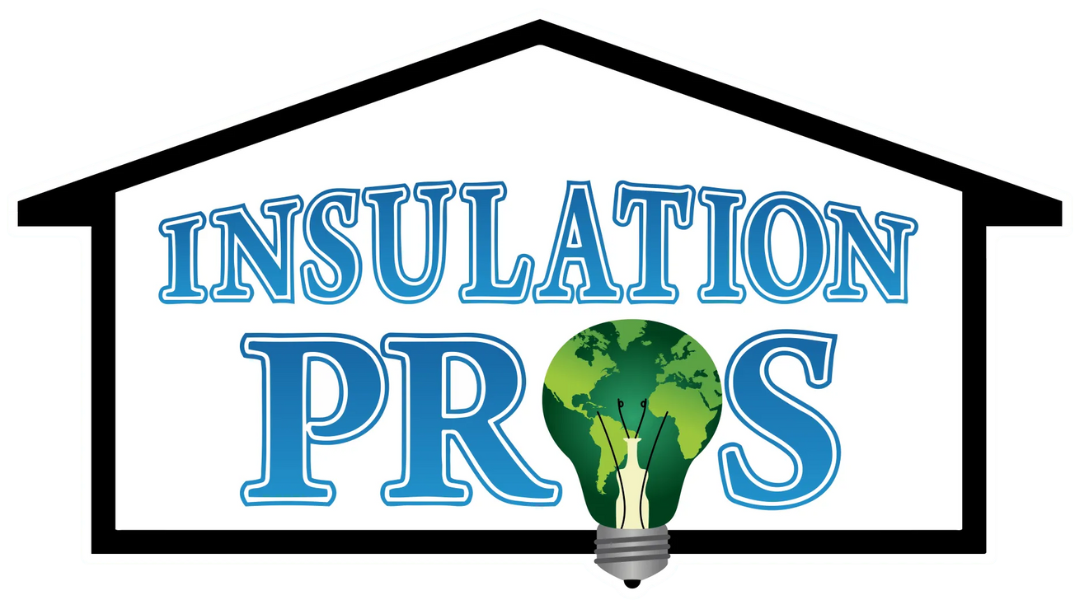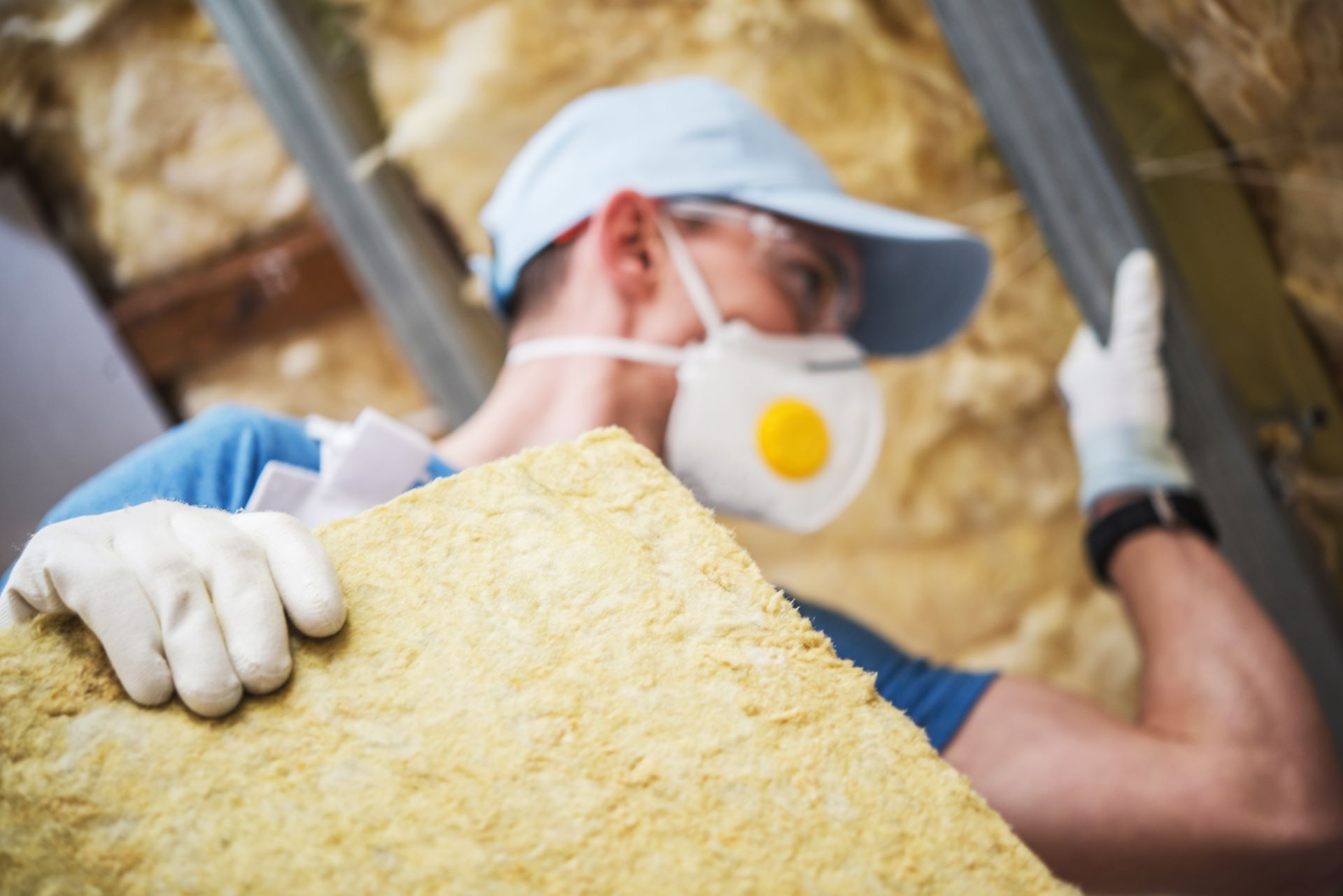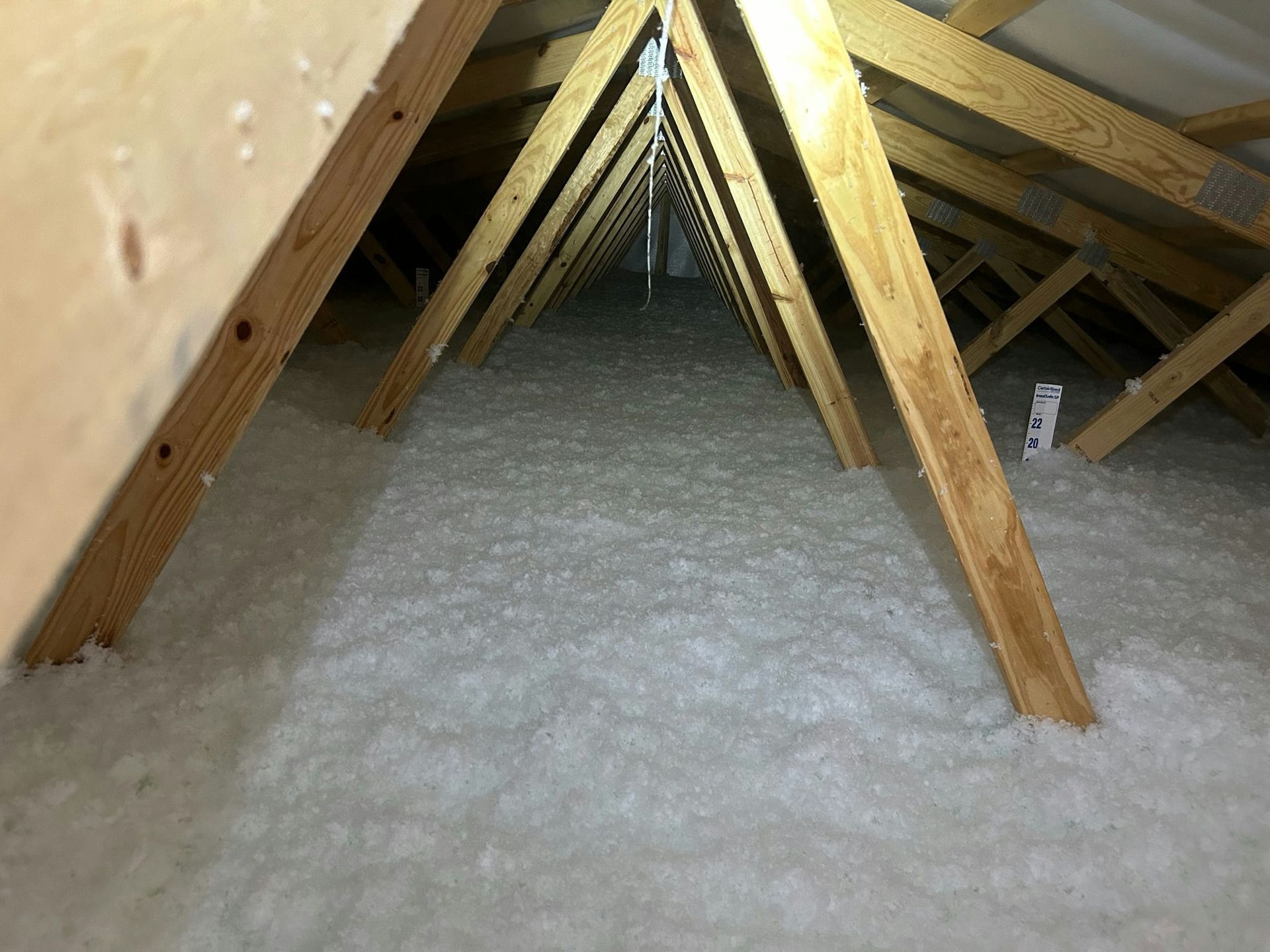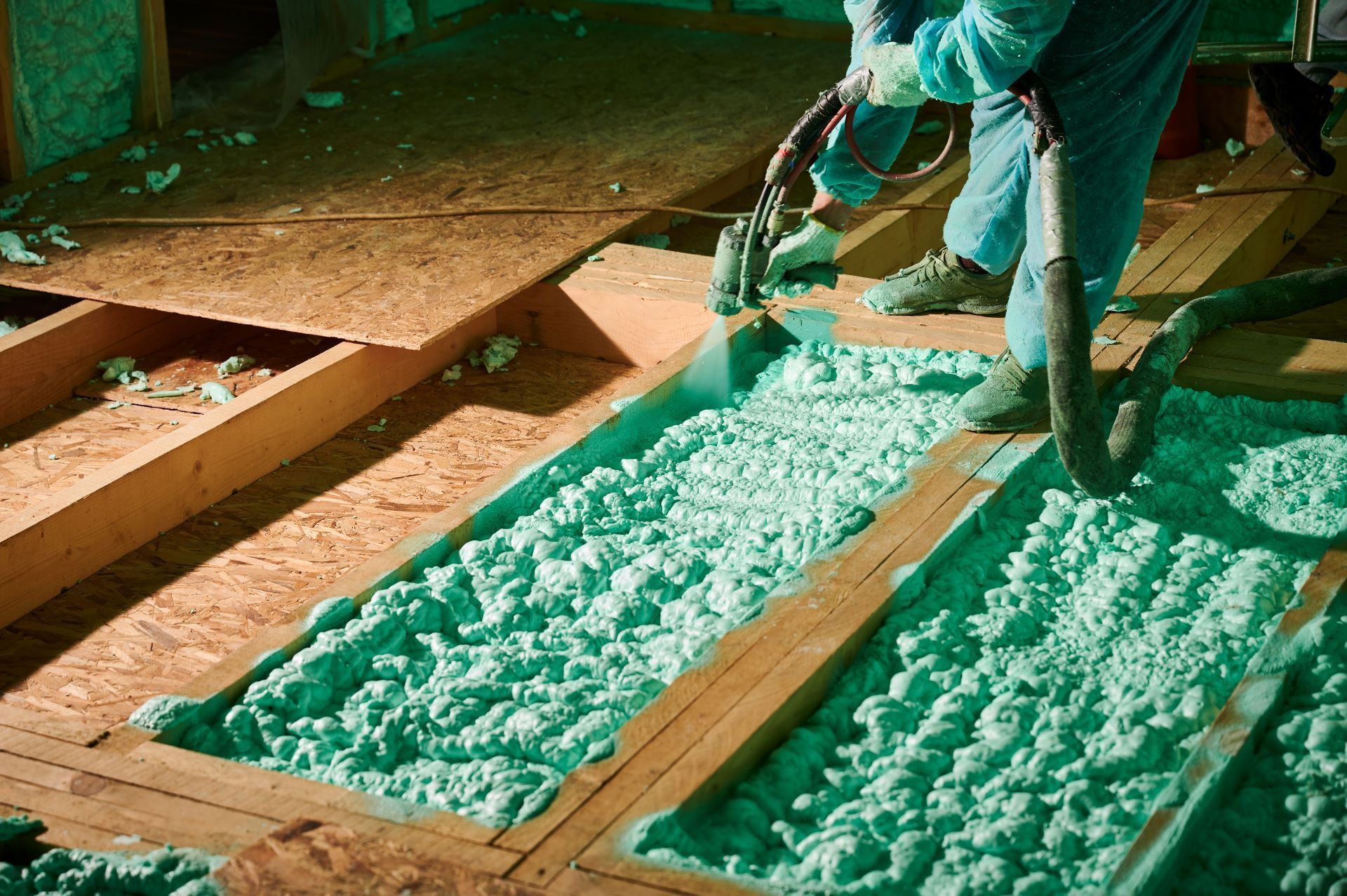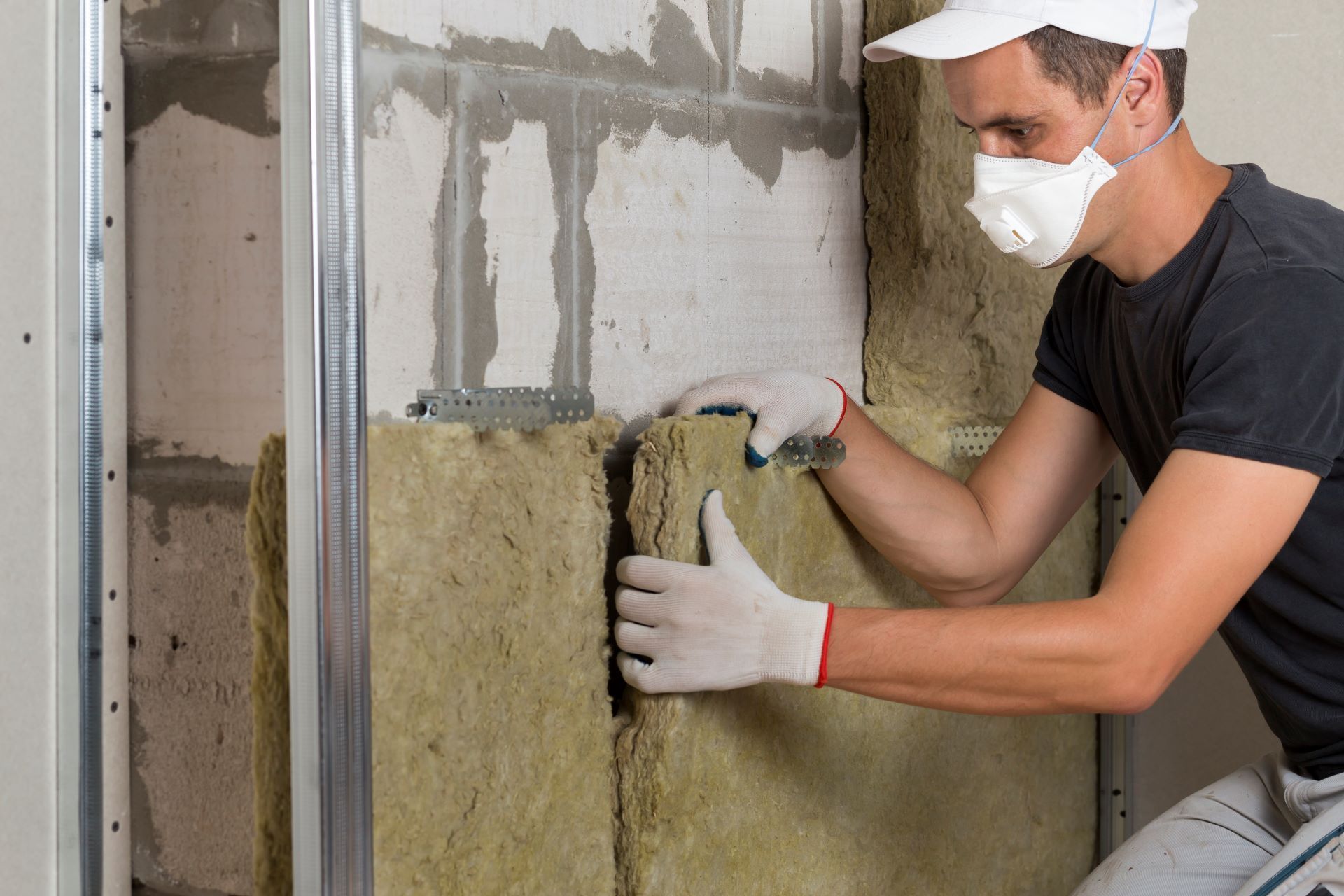Click Here to Book Your Free Insulation Evaluation!
How to Insulate a Garage Ceiling
When it comes to home insulation, the garage is often overlooked. However,
insulating your garage
ceiling can provide numerous benefits, from improved temperature control to enhanced energy efficiency. Whether you use your garage as a workspace, a storage area, or simply as a place to park your car, properly insulating the ceiling can make a significant difference.
In this guide, we'll explore the best types of insulation for a garage ceiling, the reasons why you should consider this upgrade, and the value of hiring professionals for the job.
In this guide, we'll explore the best types of insulation for a garage ceiling, the reasons why you should consider this upgrade, and the value of hiring professionals for the job.
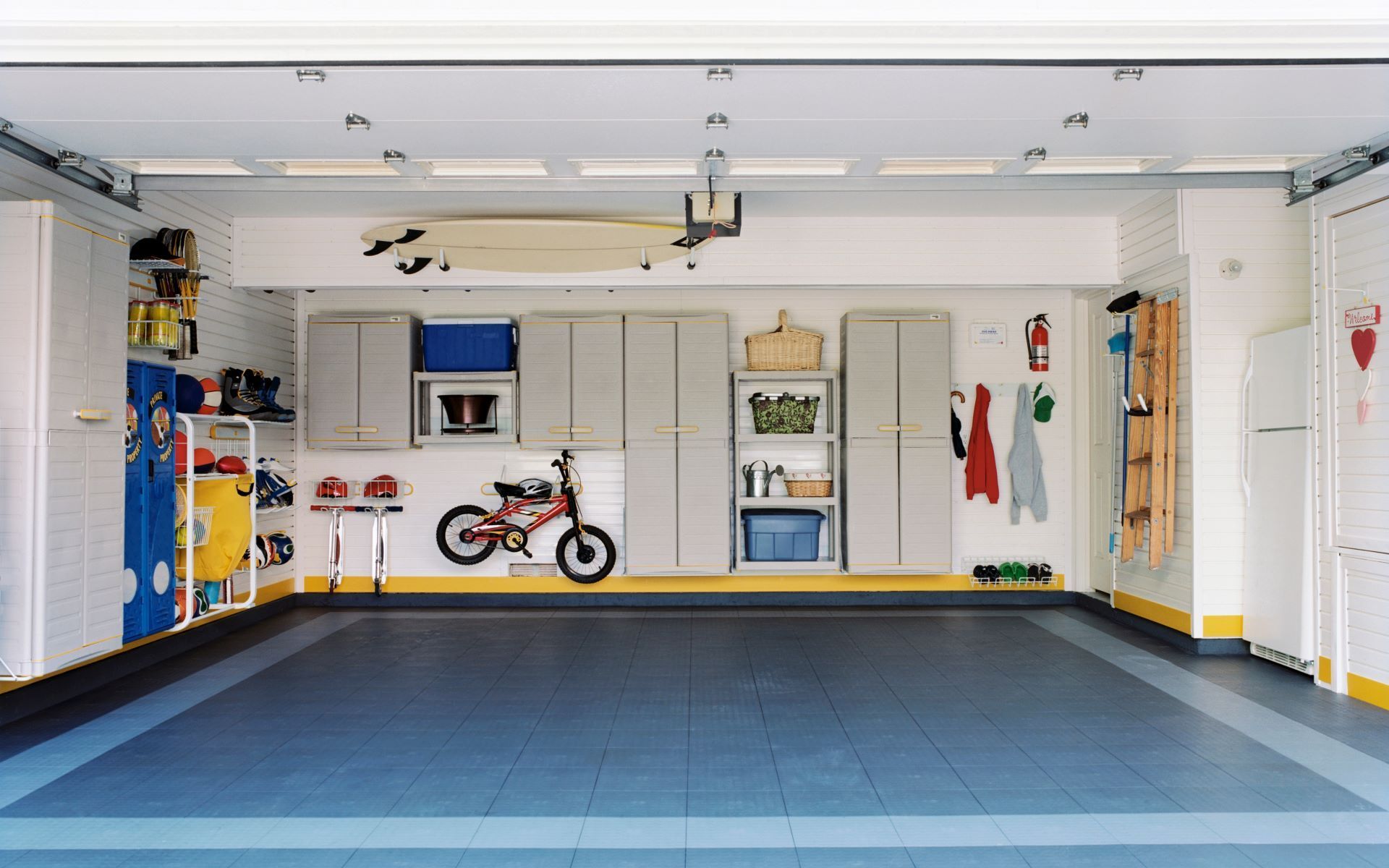
Why Insulate a Garage Ceiling?
Temperature Control
Insulating your garage ceiling helps regulate the temperature within the space, making it more comfortable throughout the year. This is especially important if you have a living space above the garage. Without insulation, heat can easily escape in the winter, and hot air can seep in during the summer, making it difficult to maintain a consistent temperature. Proper insulation creates a barrier that keeps the garage — and the rooms above it — at a more stable and comfortable temperature.Energy Efficiency
An insulated garage ceiling can significantly reduce your home's energy consumption. By preventing heat loss in the winter and heat gain in the summer, your HVAC system doesn't have to work as hard to maintain the desired temperature, leading to lower energy bills. Additionally, reducing your energy usage is beneficial for the environment, as it decreases your household's carbon footprint.Soundproofing
If your garage is used for hobbies that generate a lot of noise, such as woodworking or band practice, insulating the ceiling can help keep the noise from disrupting the rest of the house. Similarly, it can prevent outside noise from entering the garage, creating a quieter, more peaceful space. Protect Against Moisture
Moisture can be a significant issue in garages, especially if they aren't well-insulated. Insulating the ceiling helps reduce the risk of condensation buildup, which can lead to mold and mildew growth. This not only protects the structural integrity of your garage but also maintains a healthier environment for anyone using the space.Best Types of Insulation for a Garage Ceiling
Fiberglass Batt Insulation
Fiberglass batt insulation is one of the most common and affordable options for insulating a garage ceiling. It comes in pre-cut panels that fit between ceiling joists and is relatively easy to install, making it a good option for DIY enthusiasts. Fiberglass batt insulation provides good thermal resistance and is effective for unfinished garage ceilings. However, it can lose effectiveness if compressed or if there are gaps.Spray Foam Insulation
Spray foam insulation is an excellent choice for insulating garage ceilings, especially if there are irregular shapes or difficult-to-reach areas. It provides a high R-value and creates an airtight seal, preventing air leaks and enhancing energy efficiency. Spray foam also acts as a moisture barrier, which is ideal for garages that experience high humidity. Due to its application process, professional installation is recommended.Rigid Foam Insulation
Rigid foam insulation is a durable option that offers a high insulation value per inch of thickness. It's resistant to moisture and provides a solid barrier against temperature fluctuations. This type of insulation is particularly suited for garages that are finished or need a polished look. Rigid foam panels can be cut to fit and are often used in combination with other insulation types for added effectiveness.Blown-In Insulation
Blown-in insulation is a good option for retrofitting and can be used to fill gaps in existing insulation. It's particularly useful for insulating hard-to-reach areas in the garage ceiling. This insulation type is typically made of cellulose or fiberglass and requires a professional blower machine for installation. While it may be more challenging to install than other types, it offers excellent coverage and insulation performance.Step-by-Step Guide to Insulating a Garage Ceiling
- Assess the Garage Ceiling
Before starting, inspect your garage ceiling for any existing insulation, leaks, or structural issues. Ensure the ceiling is in good condition and free from any water damage or mold, as these issues should be addressed before installing new insulation. - Choose the Right Insulation Material
Based on your budget, climate, and garage usage, select the insulation material that best suits your needs. Consider factors like R-value (thermal resistance), moisture resistance, and ease of installation. - Gather Necessary Tools and Materials
You'll need a utility knife, a tape measure, safety goggles, gloves, a ladder, and your chosen insulation material. For some types, like spray foam or blown-in insulation, specialized equipment is required, and professional installation is recommended. - Seal Air Leaks
Before insulating, seal any gaps, cracks, or openings in the garage ceiling using caulk or spray foam. This step is crucial to prevent air leakage and ensure the insulation performs effectively. - Install the Insulation
Follow the manufacturer's instructions for installing your chosen insulation type. For fiberglass batts, fit the panels snugly between the joists, ensuring no gaps. For spray foam, apply it evenly to create a continuous barrier. If using rigid foam panels, secure them in place and seal the edges. - Check and Finish
After installing the insulation, inspect the ceiling to ensure complete and even coverage. If necessary, add drywall or other finishing materials to protect the insulation and give the ceiling a polished appearance.
Why Hire a Professional for Garage Ceiling Insulation
Professional insulation contractors have the expertise to assess your garage’s needs and recommend the best insulation type. They understand how to achieve optimal coverage and R-value, ensuring maximum energy efficiency and comfort.
Installing insulation, especially in a garage ceiling, can be hazardous due to electrical wiring, structural challenges, and working at heights. Professionals are trained to handle these risks safely and effectively.
A professional team can complete the insulation project more quickly and with a higher standard of workmanship than a DIY approach. They have the right tools and knowledge to ensure the job is done correctly the first time.
Most professional insulation services come with a warranty, giving you peace of mind that the job is done right. If any issues arise, they can be addressed promptly, ensuring your investment is protected.
A professional team can complete the insulation project more quickly and with a higher standard of workmanship than a DIY approach. They have the right tools and knowledge to ensure the job is done correctly the first time.
Most professional insulation services come with a warranty, giving you peace of mind that the job is done right. If any issues arise, they can be addressed promptly, ensuring your investment is protected.
Transform Your Garage with Professional Insulation
Insulating your garage
ceiling can greatly enhance the comfort, energy efficiency, and functionality of your space. Whether you choose fiberglass batt, spray foam, rigid foam, or blown-in insulation, the benefits of a well-insulated garage are clear.
To ensure the best results and to save yourself time and hassle, consider hiring the professionals at Insulation Pros . Our experienced team serves the Kansas City area, providing top-quality insulation services that meet your needs.
Contact us today for a free consultation and take the first step toward a more comfortable, energy-efficient garage!
To ensure the best results and to save yourself time and hassle, consider hiring the professionals at Insulation Pros . Our experienced team serves the Kansas City area, providing top-quality insulation services that meet your needs.
Contact us today for a free consultation and take the first step toward a more comfortable, energy-efficient garage!
Book a Service Today
Recent Posts
Owned
Veteran Owned and Family Operated
Team
Experienced Team at Insulation Pros
Free Quote
Our team offers free estimates
Service
#1 Customer Rated in Kansas City
We Proudly Service All Of Kansas City
| Belton, MO | Raymore, MO | Merriam, KS |
|---|---|---|
| Spring Hill, KS | Olathe, KS | Shawnee, KS |
| Mission, KS | Overland Park, KS | Prairie Village, KS |
| Blue Springs, MO | Liberty, MO | Fairway, KS |
| Bonner Springs, KS | Gardner, KS | Raytown, MO |
| Lenexa, KS | Independence, MO | Lee's Summit, MO |
| Leawood, KS | Gladstone, MO |
